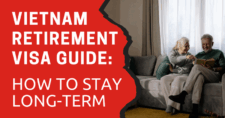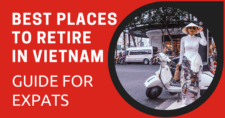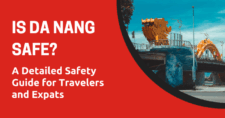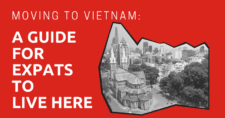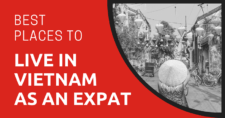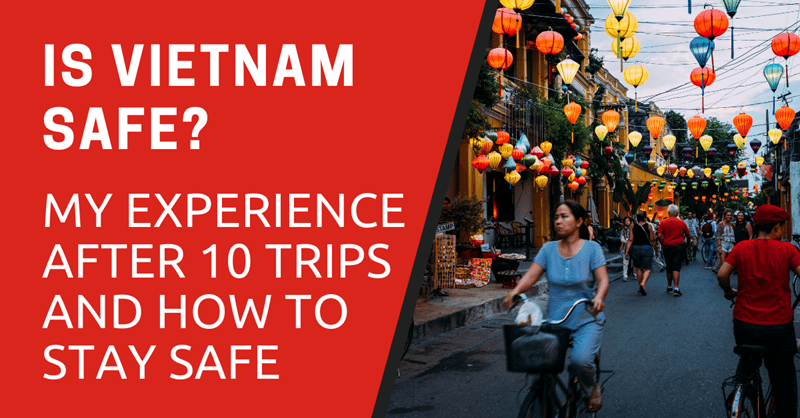
This article will take approximately 19 minutes to read. Don't have the time right now? No worries. Email the ad-free version of the article to yourself and read it later!
Is Vietnam safe to travel? Get insights on crime, scams, food safety, and road tips to enjoy a safe trip in Vietnam.
I’ve been to Vietnam almost 10 times over the past decade. When I first went there, I was honestly worried about safety, especially stories of bag snatching and scams. Many people I knew had shared their experiences of being overcharged, losing their belongings, or getting scammed, so I went in feeling cautious.
But over the years, as I got to know Vietnam better, those worries faded. Of course, Vietnam isn’t perfect. It has its share of safety issues, and I’ve had a few minor problems while traveling there. Still, I can confidently say that Vietnam is generally safe. Once you understand the local environment and know what to watch out for, traveling around the country becomes much easier and far less stressful.
Safety in Vietnam can vary depending on where you go. Big bustling cities like Hanoi and Ho Chi Minh City come with more challenges, such as heavy traffic, pickpockets in crowded areas, and tourist scams, while places like Da Nang or smaller towns tend to feel calmer and more relaxed. Even though Vietnam is safe overall, it’s important to know the risks so you can avoid trouble before it happens.
In this article, I’ll cover everything you need to know about staying safe in Vietnam, from crime and scams to food hygiene, road safety, and even natural disasters. I’ll share my personal experiences as well as practical tips to help you have a safe and enjoyable trip, whether you’re visiting for a short vacation or planning to live here long-term.
Disclaimer: This article may include links to products or services offered by ExpatDen's partners, which give us commissions when you click on them. Although this may influence how they appear in the text, we only recommend solutions that we would use in your situation. Read more in our Advertising Disclosure.
Contents
Crime Rate in Vietnam
According to Numbeo, Vietnam’s safety index is about 59.6 out of 100, which means it is generally safe. However, when compared to Thailand, Vietnam has slightly higher petty crime rates and a lower overall safety score.
But it isn’t something you should worry about since violent crime is rare. You are likely to be scammed rather than physically harmed. Violent crimes targeting foreigners are extremely uncommon.
On Reddit, one traveler shared:
“Perfectly safe as far as crime is concerned. Vietnam does have a bit of a scamming and overcharging problem though.”
In my experience, I agree with it. I never once got into a safety issue, even though I’ve traveled here almost 10 times. But I do get scammed once in a while.
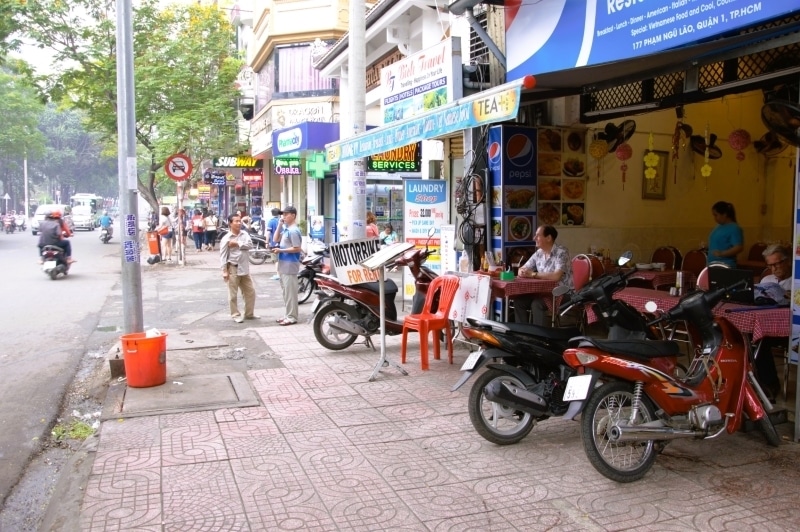
In addition, it’s good to know that the safety is also different based on each area. For example, smaller towns and central cities like Da Nang and Hue tend to feel safer and more relaxed. On the other hand, big cities like Hanoi and Ho Chi Minh City. see more cases of pickpocketing, bag snatching, and scams, especially in crowded markets, and nightlife districts.
Therefore, with some awareness, especially in busy tourist areas, you can avoid most problems and enjoy a safe trip.
For up-to-date safety information, you can check the U.S. State Department travel advisory for Vietnam or your home country’s equivalent
Petty Theft in Vietnam
Petty theft exists in Vietnam, but it is not as bad as some people make it sound. Personally, I have never experienced any theft during my trips to Vietnam. However, I am always extra careful with my belongings, even more so than when I travel in Thailand.
When walking in busy areas like walking streets or markets, I always carry my backpack in front of me. Sometimes, I even walk while checking GPS on my phone, and I have never had a problem. That said, I mostly stick to safer areas, which helps reduce the risk.
Common Petty Theft Cases
Most petty theft happens when valuables are left unattended or when tourists are distracted. It is opportunistic rather than aggressive.
Pickpocketing and Small Cash Theft
There was a recent case shared by a Reddit user about a theft at a spa in Hanoi.
“Friend and I visited Orient Spa in Hanoi. After returning to our accommodations from the massage, we were both short about 1 million VND in cash. It wasn’t all the cash we had, but a noticeable amount since we didn’t carry much. We suspect that the staff took some cash while we were asleep, though we have no proof. From online searches, this seems like a known scam where they take just enough so it’s not obvious right away.”
The takeaway here is to avoid carrying large amounts of cash and keep your money in a secure bag or locker when getting massages or spa treatments.
Helmet Theft
Another common issue is helmet stealing. Even if you lock your helmet with a cable, thieves may cut it. A Reddit user shared:
“I lock my bicycle with a U-lock and a cable and always put the cable through the straps of the helmet. Someone still managed to cut it and steal the helmet.”
The lesson here is simple: avoid leaving expensive helmets on your motorbike. Use cheap helmets when possible and take them with you when parking in busy areas.
Food or Small Items on Bikes
If you leave food or small bags unattended on your parked motorbike, there’s a good chance someone might take them. This is especially true in crowded areas or near local markets.
My Experience and Advice
From my experience, as long as you keep your belongings with you, the risk of theft is low. In fact, there is a higher chance of being scammed by a taxi than having your belongings stolen.
Scams in Vietnam
This is what worries me the most whenever I travel to Vietnam. Scams are still common here, and while most of them are minor, they can be frustrating and leave a bad impression. The most common scam, like in many countries around the world, happens at the airport with taxis.
In the past, if you hailed a taxi off the street, there was a high chance you would be overcharged. The best way to avoid this was to ask your hotel to call a taxi for you. These days, the situation has improved thanks to ride-hailing apps like Grab. However, scams haven’t disappeared completely.
My Personal Experience: the Fake Grab Driver Scam
This happened to me at Da Nang airport, and I later learned it has happened to many other travelers as well. I booked a Grab through the app without realizing that Grab cars aren’t allowed to pick up passengers directly at the airport terminal. While I was waiting, a driver approached me and claimed he was my Grab driver.
He suddenly grabbed my phone, saying he needed to check if I was his customer. Instead, he canceled my real Grab booking, then convinced me to ride with him. At the end of the trip, he charged me almost double the normal fare, claiming the extra amount was an “airport fee.”
It was frustrating especially that I can’t speak Vietnamese. Thankfully it only happened once. After that experience, I always used Grab to get around and never had another issue. When traveling between cities, I also asked my hotels to arrange taxis for me, which worked smoothly every time.
Tip: I always pay my Grab fares by credit card through the app. It automatically deducts the fare and avoids confusion with Vietnamese dong since the bills have such high denominations.
Other Common Scams to Watch Out For
While I only personally experienced the airport taxi scam, many other scams are frequently reported by travelers in Vietnam. Here are some of the most common ones:
Police Stops Targeting Tourists on Motorcycles:
Certain areas, like Mui Ne, are notorious for this. If you’re riding a motorbike, always carry a valid international driver’s license.
- If you don’t have your license with you, the police can impound your vehicle and fine you up to 200,000 VND.
- If you don’t have a valid license at all, the fine can go as high as 5,000,000 VND.
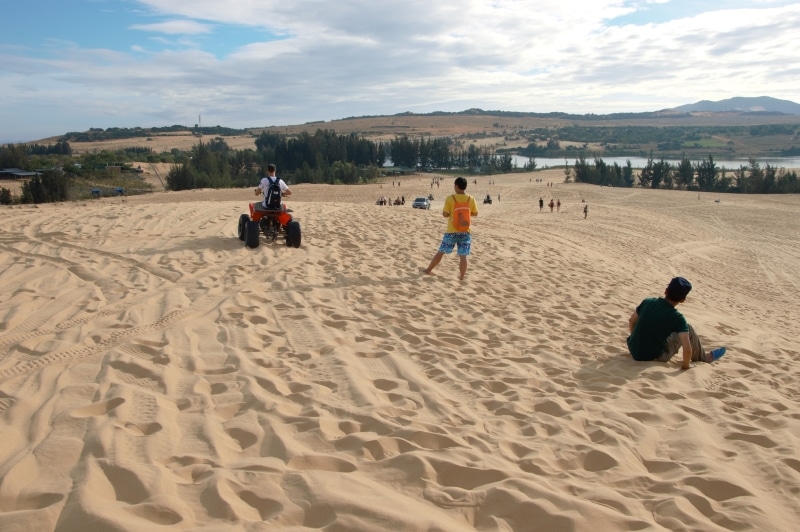
Currency Confusion Scams
Vietnamese dong has very high denominations, which makes it easy for scammers to take advantage by giving you the wrong change or swapping bills. For example, after you pay for things with high denomination bank notes.
Always count your change carefully and pay attention when using cash.
Street Vendors in Tourist Areas
In places like Hanoi’s Old Quarter, ignore the women selling fruit or donuts and the men offering shoe cleaning.
If you engage with them, they may try to pressure you into buying something at an inflated price. The best approach is to keep walking and not even make eye contact.
Overpriced Medication at Pharmacies
Some pharmacies target tourists by overcharging for common medicines. To avoid this, look for well-stocked, professional-looking pharmacies. If a price seems too high, shop around since there are usually multiple pharmacies nearby.
Tourist Pricing at Markets
Paying a little extra at tourist markets is common and happens everywhere in the world. It’s not really a scam, but it’s worth being aware of. If you feel uncomfortable, try bargaining. It can be a fun experience although you know deep in your heart that the price you get is still more expensive than the usual price.
Walking Alone: Day vs. Night
I’ve never had any safety problems walking around Vietnam during the day. Whether I was in busy cities or smaller towns, it always felt safe and comfortable. Locals are usually friendly, and the atmosphere is lively, which adds to that sense of security.
Things can feel a bit different at night, though. I’ve had two memorable experiences that made me more cautious after dark.
The first was in Phạm Ngũ Lão, a well-known nightlife district in Ho Chi Minh City. While nothing happened to me, I felt uneasy walking alone there late at night. The area is crowded with bars, clubs, and tourists, and the overall vibe felt less safe than during the day.
The second time was in Ha Long Bay, which isn’t a nightlife area at all. I couldn’t sleep one night, so I decided to take a short walk near my hotel around midnight. Out of nowhere, an older Vietnamese woman started following me. She kept showing me pictures of a “sexy woman” on her phone, claiming it was her “nephew.” I ignored her and kept walking, but she followed me for about five minutes before finally giving up. It was unsettling even though nothing serious happened.
From my experience, Vietnam is very safe during the day. At night, it’s still generally safe, but you might encounter situations that feel uncomfortable or awkward, especially if you’re alone. It’s better to avoid walking by yourself late at night, particularly in nightlife districts or empty streets. If you need to go somewhere, take a Grab instead.
Food Safety in Vietnam
Vietnamese food uses a lot of vegetables, which are a big part of many dishes. If you are not sure about hygiene, it’s better to avoid raw vegetables and stick to food that is served hot.
A good rule of thumb: eat where locals love to go since high turnover usually means fresh ingredients.
Personally, I have never had food poisoning in Vietnam, even though I eat street food all the time. I love exploring local markets and trying new dishes, and street food is one of the highlights of traveling there.
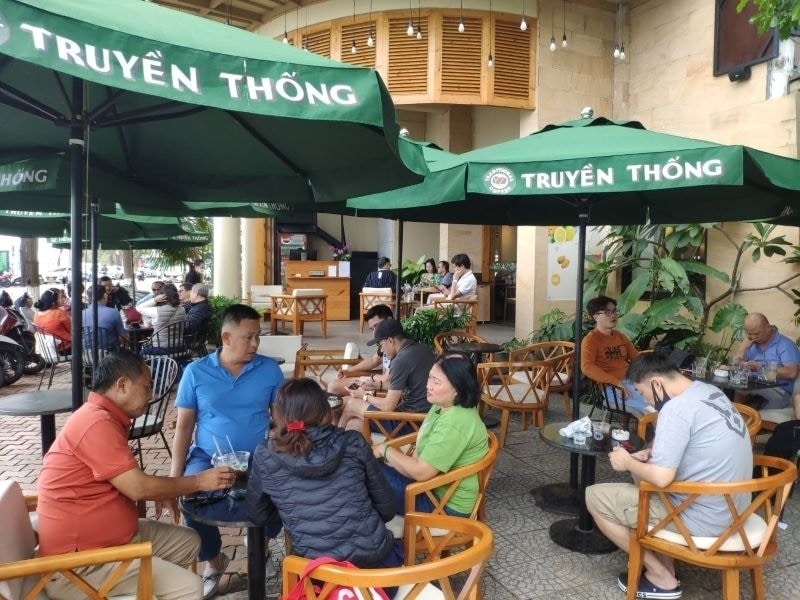
The only time I felt unwell was from coffee. Vietnamese coffee is strong and has a very high caffeine level. One time, I drank too much and ended up feeling nauseous. That said, I still recommend trying it because it’s amazing, especially coconut coffee and egg coffee. Just pace yourself if you’re sensitive to caffeine.
When it comes to street food, especially items like banh mi, pay attention to how the food is stored. If ingredients look like they have been sitting out for days or the stall appears unhygienic, it’s better to skip it. Hot, freshly cooked food is always the safest choice.
As a precaution, I always carry activated charcoal tablets with me in case of food-related stomach issues. Luckily, I’ve never had to use them, but having them on hand gives me peace of mind.
Mosquitoes
Like many tropical countries, Vietnam has mosquitoes, but they are mostly a problem in forested or rural areas rather than in cities. If you stay in urban areas like Hanoi, Ho Chi Minh City, or Da Nang, you probably won’t notice them much, especially if you spend most of your time in developed neighborhoods.
Mosquitoes become more of an issue when you visit countryside villages, or go on outdoor adventures such as hiking or boat tours. These are the places where you need to be careful since mosquitoes in Vietnam can carry diseases like dengue fever.
If you plan to spend time outdoors, especially in rural or heavily wooded areas, bring mosquito repellent or buy it locally. In cities, they are rarely a major concern, so you can focus on enjoying your trip without worrying too much about bites.
If you are concerned about mosquito problems, read advice from the CDC on how to prevent mosquito-borne illnesses while traveling.
Natural Disasters
Vietnam is prone to typhoons, especially in central and coastal regions. The typhoon season typically runs from June to November, with the heaviest storms often hitting between September and October. During this time, you can expect heavy rain that may last throughout the day.
Flooding can also occur, particularly in low-lying areas. The good news is that most floods tend to recede quickly and don’t usually disrupt travel for long periods.
If you are traveling to Vietnam during the rainy or typhoon season, always check the weather forecast before making plans. If a storm is approaching, avoid going out to sea or participating in water activities. Staying aware of local weather reports and planning ahead will help you stay safe and avoid unnecessary risks.
Road Safety
Road safety is one of the first things you notice when you arrive in Vietnam. Cities are packed with motorcycles honking constantly, and at first glance, it may seem like there are no traffic rules at all. The chaotic mix of scooters, cars, and buses can feel overwhelming, especially if it’s your first time visiting.
It looks dangerous, but once you are actually there, it’s not as bad as it seems. Traffic inside most cities moves at a slow pace, so serious accidents are less common than you might expect. Personally, I’ve never witnessed an accident during any of my trips to Vietnam.
The real challenge: It’s crossing the street. Cars and motorcycles don’t stop, so you need to walk slowly and steadily while giving drivers time to move around you. I remember one time in Hanoi when I stood frozen at a busy crosswalk, unsure how to make it across. A kind Vietnamese local noticed my hesitation and helped me cross safely.
Riding a Motorcycle in Vietnam
If you are thinking about riding a motorcycle or driving a car in Vietnam, I strongly suggest reconsidering, especially if you’re not familiar with the way locals drive. It’s only worth doing if you live in a small city or rural area where the roads are less crowded. In large cities like Hanoi or Ho Chi Minh City, it’s better to stick to Grab for your safety.
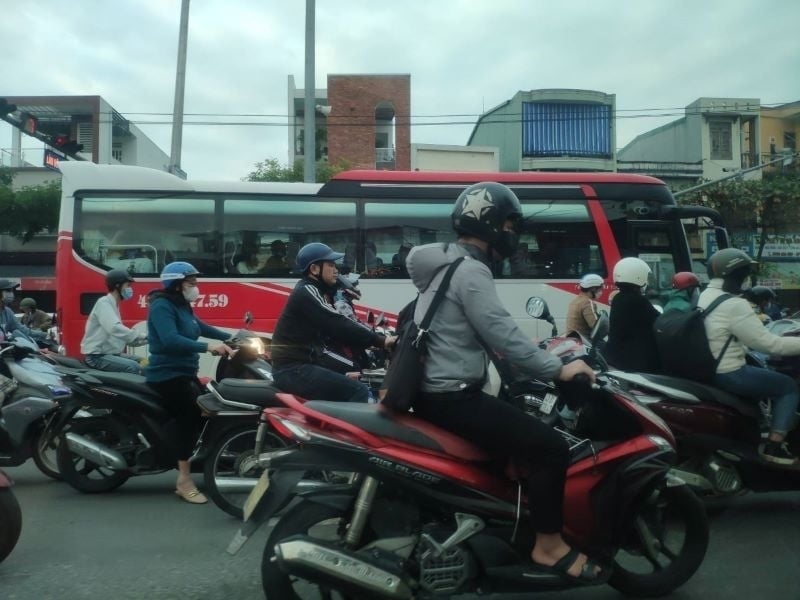
Be aware that many foreigners run into issues with traffic police, especially in places like Mui Ne. Speeding is a common reason for being stopped. Always carry an international driver’s license to avoid fines or having your vehicle impounded.
Lastly, always wear a helmet, follow local traffic regulations, and ride cautiously. Even if the traffic seems chaotic, respecting the rules will help keep you safe and avoid unnecessary problems.
Pollution
Air pollution can be an issue in Vietnam, especially in big cities like Hanoi and Ho Chi Minh City. While it is not always at dangerous levels, it can still cause discomfort if you spend a lot of time outdoors.
From my experience, AQI data in Vietnam is not always reliable. There have been many times when I was in Hanoi or Da Nang and the AQI showed “good” or “moderate” air quality, yet the sky was hazy. After staying outside for just a few hours, I started to get an itchy throat and mild irritation. I am quite sensitive to air pollutants, so I’ve learned not to fully trust the numbers shown on apps.
If the sky looks unclear or you notice haze, treat it as a polluted day, even if the AQI app says otherwise. Wearing a mask is a simple way to protect yourself, especially if you have allergies or respiratory issues. This is particularly important if you plan to walk around busy streets or spend a lot of time outside.
Noise
Noise is another issue you might encounter in Vietnam, especially in busy cities. Some areas experience significant noise pollution, mostly from traffic during the day. On top of that, it’s not uncommon for music to be played very loudly, and you can sometimes hear it clearly even if you are staying on the 10th floor of a hotel.
The good news is that in most places, the noise usually dies down at night.
However, if you stay near a nightlife district or directly across from a bar, it can be a completely different experience. In those areas, the noise can continue late into the night, making it difficult to sleep.
Tip: always read hotel reviews carefully before booking. If multiple guests complain about noise, it’s probably better to choose another place. Some hotels do have noise prevention measures, like double-glass windows, which help block out the sound, but not all rooms are equipped with them. Checking reviews will give you a better idea of what to expect.
Emergency Contacts
Here are some important emergency numbers to keep handy when traveling in Vietnam:
- Police: 113
- Fire: 114
- Ambulance: 115
- Tourist Police Hotline: +84 236 3822 544
Recommended hospitals with English-speaking staff:
- Hanoi: Vinmec International Hospital
- Ho Chi Minh City: FV Hospital
- Da Nang: Family Medical Practice
These hospitals are well known for providing quality care and having staff who can communicate in English, which makes seeking help much easier for travelers and expats.
Final Verdict: Is Vietnam Safe?
Vietnam is a very safe country for most travelers and expats as long as you take basic precautions. Violent crime is extremely rare, and locals are generally very friendly and welcoming. Many travelers even end up making good friends with Vietnamese people during their stay.
The biggest risks you will face are scams, petty theft, and road accidents. These problems are mostly avoidable if you stay alert, use common sense, and follow the tips shared in this article.
With awareness and preparation, Vietnam offers a safe, rewarding, and unforgettable travel experience. You can also live or retire here without any safety concern.
Also, personally, I always have travel insurance when traveling to Vietnam. I’ve never had to use it, but it gives me peace of mind knowing that if something unexpected happens, like a hospital visit or lost belongings, I’ll be covered and won’t have to deal with extra stress.


